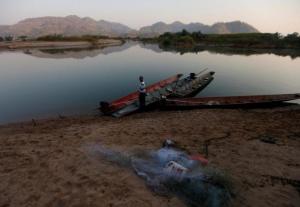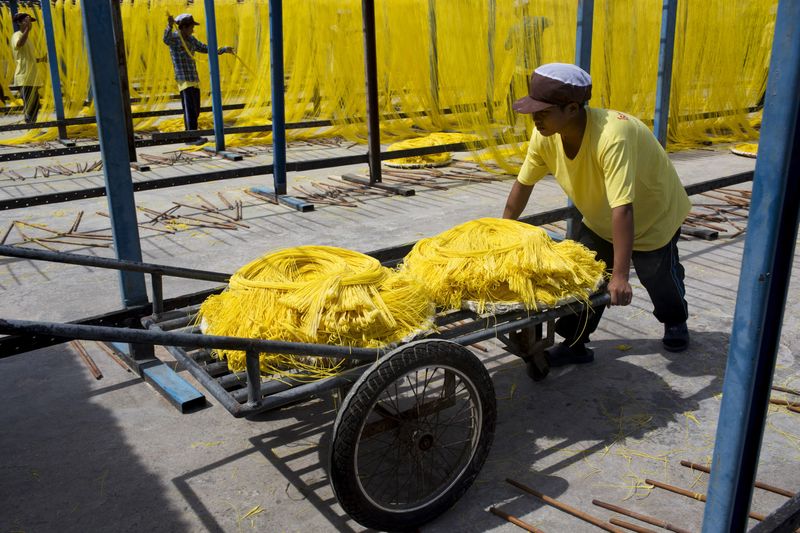 Laos’ Sanakam dam anger grows in neighbouring Thailand Nan province
Laos’ Sanakam dam anger grows in neighbouring Thailand Nan province
A conservation group has called for the scrapping of the Sanakam dam which is being built in Laos on the Mekong River two kilometres from Nan province.
The group urged Laos and neighbouring countries to embrace more ecological friendly renewable energy projects such as solar cells instead.
The Save the Mekong group on Tuesday demanded the Lao hydroelectric dam project be terminated because it would “cause environmental impacts and be no longer viable” especially when the world is “blessed with more environmentally friendly and cheaper energy” sources such as wind and solar.
“The proposed Sanakam dam is expensive, unnecessary and risky — and should be cancelled,” the group said.
Construction of the dam, estimated to cost US$2 billion (63 billion baht), started eight years ago.
It is one of six hydro dams that the Lao government initiated and is expected to be finished at the end of this year.
“The 684-megawatt dam pales in comparison to the installation of more sustainable energy options being rolled out in the region,” the group said.
“For example, between April and July 2019, neighbouring Vietnam added 4,400 megatts from a solar project which is more than six times the installed capacity of Sanakham dam.”
Conservation groups in the region are revving up their campaign against the Sanakam project.
On June 11 the Lao government will kick start its six-month-process — Procedures for Notification, Prior Consultation and Agreement (PNPCA) — as required by the Mekong River Commission (MRC) for the Sanakam project.
The MRC is a regional inter-governmental organisation that works directly with the governments of Cambodia, Laos, Thailand, and Vietnam to jointly manage shared water resources and the sustainable development of the Mekong.
The MRC requires member countries to conduct PNPCA consultations for projects with transboundary impacts. However the PNPCA does not override the sovereignty of a country.
Laos has faced accusations of having outdated environmental impact studies, insufficient participation from all stakeholders and weathered concerns from downstream countries such as Cambodia and Vietnam about the ecological impact on soil fertility and fisheries.
Critics said dam structures have changed the river ecology and blocked fish migration and sediment flows that play an important role in enriching soil along the river and farmland in Cambodia and Vietnam.
In Thailand, conservation groups and a network of communities along the river are expected to petition the Prime Minister Prayut Chan-o-cha. Thailand will import electricity from Sanakam dam.
Suwit Kularbwong, coordinator of the Human Rights and Environment Association, said local people living along the Mekong River would submit the letter to the prime minister. Villagers will demand that the government make clear its stance on protecting and preserving ecological systems and the environment along the international waterway, he said.
“The impacts will be immense when compared with other dams,” Mr Suwit said.
Source: https://www.bangkokpost.com/thailand/general/1929152/sanakam-dam-anger-grows
